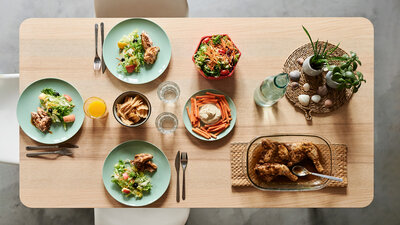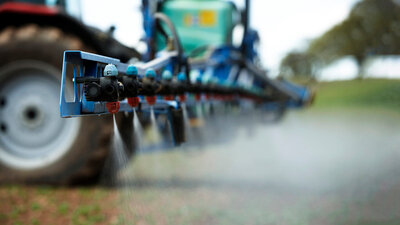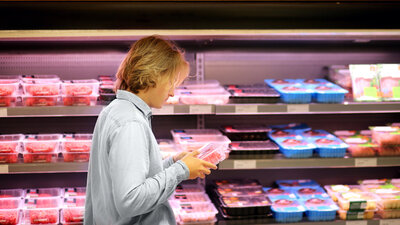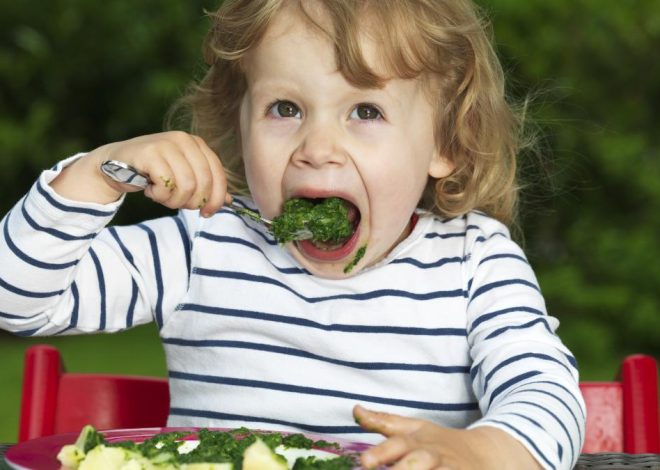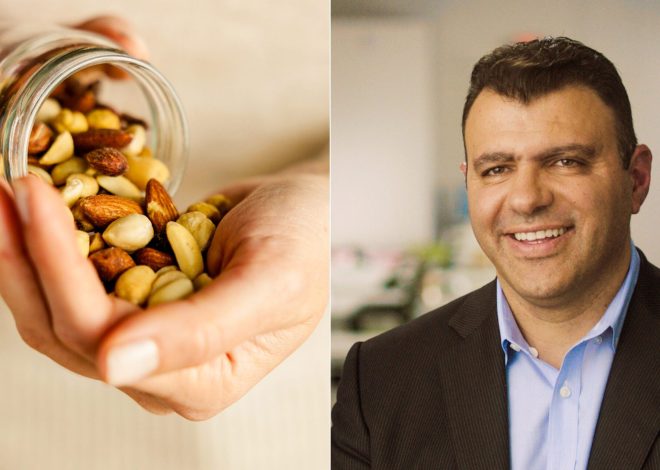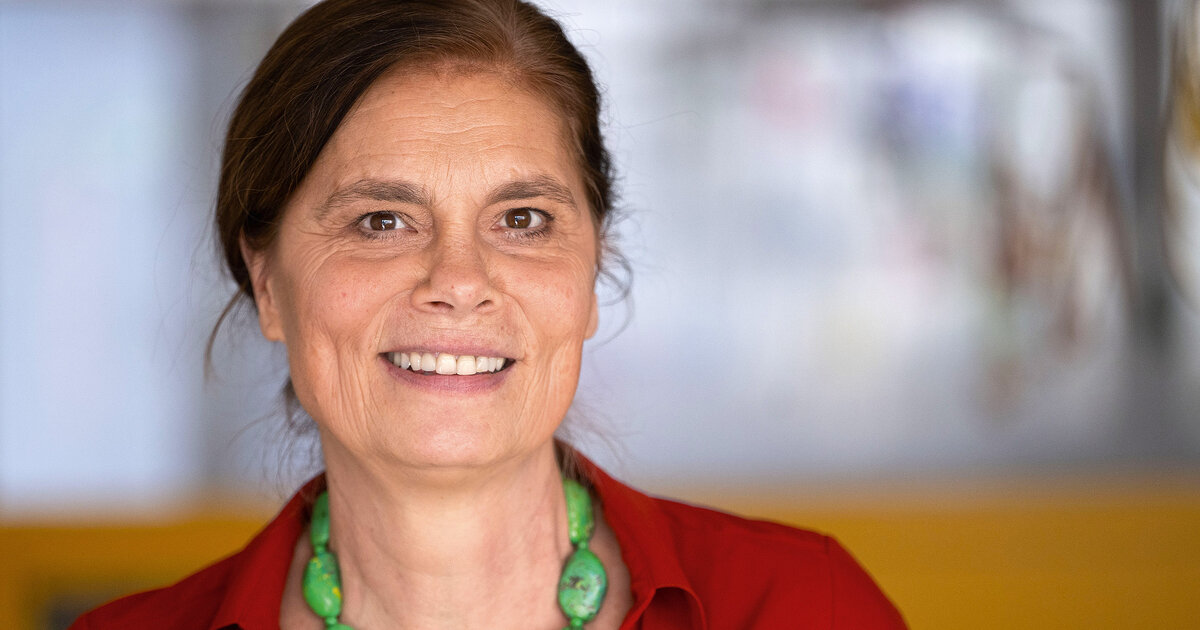
Sarah Wiener in an interview: “Nutrition is the pillar of our health”

Millions of people know her as a successful television chef – as a politician, Sarah Wiener, 61, campaigned in the EU Parliament for fewer pesticides in the fields. The Green MP is no longer standing for election, but she remains committed to good food. In the interview, Sarah Wiener talks about her experiences in politics, the food selection in supermarkets and the importance of nutrition for a healthy life.
Ms. Wiener, you will no longer be running in the upcoming European elections. It is time for a new beginning, so the reasoning goes. Can you tell us your plans?
Sarah Wiener: There is no such thing as a real new beginning at my age. I’m happy that I can work more for my foundation again. And I would like to spend another whole day standing in the kitchen with my hands in the dough – kneading, rolling out, filling. Splendid! I also want to add black nuts, they taste so great. What I’m most looking forward to is spending time with my four-year-old granddaughter and climbing trees with her someday.
A lot of your life revolves around good food.
Viennese: Food is something that connects us to the universe. Taste, touch, smell, feel – enjoy with all your senses, do something good for your body and soul. That makes me happy. When I cook for friends and family, there is love in it, the desire to spend time together and be close.
I worked hardest as a member of the EU Parliament
You worked as a waiter, later completed martial arts training and founded a catering service and made a career as a television chef. Most recently you sat in the EU Parliament. How have these new beginnings shaped you?
Viennese: What I was most nervous about was becoming self-employed for the first time; I had to take out a large loan back then. I worked hardest as a member of the EU Parliament. Now something new is starting again and I’m looking forward to gaining new experiences and learning.
How do you look back on your time in the EU Parliament?

Viennese: The world of politics in Brussels was foreign to me at the beginning. I am not an intellectual, but a practitioner. Sitting for ten hours a day from one day to the next, listening, understanding, improving and defending legal texts and having ten new topics on the table at the end of the day: that was exhausting at the beginning.
There is also room for improvement in the way things are treated within parliament, as well as the political culture and language of some members of parliament. There are currently strong populist currents from right-wing and right-wing radical parties that are not interested in compromises. The good thing is: We can have an influence through our decisions in the upcoming election.
The way things are handled within parliament, the political culture and language of some members of parliament need to be improved
The inability to compromise became clear with the pesticide reduction law that you helped negotiate. It was recently completely overturned in the EU Parliament with no prospect of further negotiations.
Viennese: That was bad. We had negotiated a good compromise in the Environment Committee and brought the draft to the plenary session with a majority of Greens, Leftists, Social Democrats and Liberals. Right-wing, right-wing radical and right-wing national parties put hundreds of amendments on the table for the final vote and literally massacred the law – without any willingness to compromise. That was a sobering experience for me.
The farmers’ association in this country welcomed the stop to negotiations. President Joachim Rukwied even warned of total crop failure if the use of pesticides were banned.
Viennese: First of all: It was never about a total ban on pesticides, but rather about a feasible, gradual reduction. There have long been concepts as to how this could be possible without major harvest losses and how farmers could even increase their income. We must reduce pesticide use for the sake of our health, to keep soils healthy, to protect our water and to stop species extinction.
Green agricultural policy is a red flag, especially for farmers. Why can’t you convince them?
Viennese: I don’t believe that “agriculture” exists. There are many different companies and a wide variety of economic interests. Especially the farmers’ associations that say they are on the side of the farmers actually represent the interests of the agricultural industry rather than those of small and medium-sized businesses, which have often been fighting for survival for a long time.
That doesn’t sound particularly optimistic.
Viennese: I am an optimist. When I speak directly to farmers at events, I notice that most of them see themselves as preservers and protectors of the soil. The positions are often not so far apart that it would not be possible to negotiate good compromises.
For your shows you have cooked in French, Italian and British kitchens. Where did it taste best?
Viennese: There were wonderful dishes everywhere. But what impressed me most was the incredibly rich Chinese cuisine. Sometimes it was just a piece of raw fish or a mushroom that tasted so wonderful that I was happy.
The food culture has also developed positively in Germany.
Viennese: Why do you think that?
Eating meatless is becoming more popular, and even discount stores are selling organic food. Regional products are also trendy.
Viennese: Maybe many people have a desire to eat better. But the general conditions are not really right. In the supermarket we can choose from thousands upon thousands of foods, all of which are produced by one of the five major food companies. These are often highly processed foods, which are now known to damage our internal ecosystem, the microbiome in the intestine.
Well, every supermarket has a huge fruit and vegetable section.
Viennese: And often it doesn’t taste really good. These Kugelwasser greenhouse tomatoes that you can leave in the fridge for weeks and then only serve as a colorful decoration on cheese bread: That has nothing to do with sun-ripened outdoor tomatoes. Did you know that there are approximately 20,000 varieties of edible tomatoes?
No.
Eating well is also a social issue. For me, nutrition is the pillar of our health
Viennese: Purple, speckled ones that form warts, others that smell like roses or taste like mushrooms. That’s incredible. If tomatoes in the garden have soaked up a lot of sun, you could eat them by the kilo.
Her foundation aims to teach children to cook and create an understanding of regional foods. Why is that so important?
Viennese: Eating well is also a social issue. For me, nutrition is the pillar of our health. If you don’t know how simple techniques can be used to conjure up a delicious meal, you’ll have to spend your whole life feeding yourself. If you don’t know how to eat healthily, you have an increased risk of getting sick. There is still a lot to do.

Ethel Purdy – Medical Blogger & Pharmacist
Bridging the world of wellness and science, Ethel Purdy is a professional voice in healthcare with a passion for sharing knowledge. At 36, she stands at the confluence of medical expertise and the written word, holding a pharmacy degree acquired under the rigorous education systems of Germany and Estonia.
Her pursuit of medicine was fueled by a desire to understand the intricacies of human health and to contribute to the community’s understanding of it. Transitioning seamlessly into the realm of blogging, Ethel has found a platform to demystify complex medical concepts for the everyday reader.
Ethel’s commitment to the world of medicine extends beyond her professional life into a personal commitment to health and wellness. Her hobbies reflect this dedication, often involving research on the latest medical advances, participating in wellness communities, and exploring the vast and varied dimensions of health.
Join Ethel as she distills her pharmaceutical knowledge into accessible wisdom, fostering an environment where science meets lifestyle and everyone is invited to learn. Whether you’re looking for insights into the latest health trends or trustworthy medical advice, Ethel’s blog is your gateway to the nexus of healthcare and daily living.

